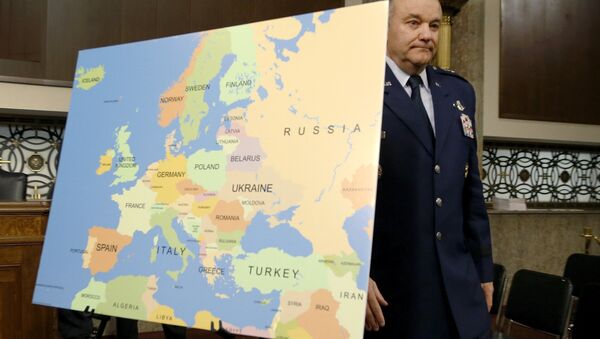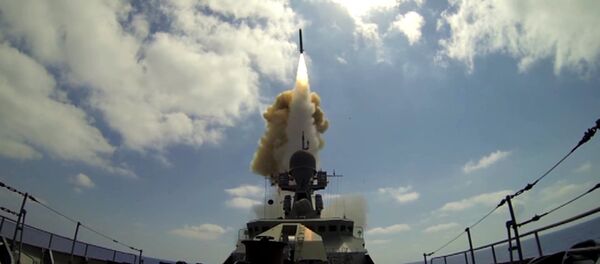"There's no [NATO] general who wakes up in the morning and says he wants to fight Russia," Breedlove said, speaking to Polish news portal Onet.
The former commander complained that "two decades of peace" after the Cold War have led to "a steady reduction in defense budgets," which in turn has affected the alliance's "strength and readiness" to meet the Russian threat.
Stressing the need for alliance members to invest more on their military capabilities, including on solutions that would allow NATO to deploy its troops "in the right places in the world," Breedlove noted that the alliance must seek to anticipate challenges that may come about 10-15 years from now.
The biggest challenge, according to the retired US Air Force general, is coordinating the alliance's activities, particularly in light of hybrid Russian "threats," such as its alleged "interference in the US presidential election, or the Russian coup attempt in Montenegro."
Asked about how Russia's intervention against terrorism in Syria was viewed by the Pentagon, Breedlove admitted that the Russian military showed "unusual adaptive capabilities" and an ability to quickly tackle problem areas. Russia's Syrian mission had been "instructive" to NATO, he said, and demonstrated a significant improvement in the use of precision weaponry, sending "a clear message to all the capitals of Europe that 'we can reach Syria with our missiles from the Caspian Sea, and can reach you if necessary.'"
"We are not two steps behind Russia," Breedlove insisted. "Looking at Moscow, we can see that transportation takes place quickly due to the arrangement of roads and railways. The same is true with the concentration of forces. … But I don't think their interoperability, capabilities, scope of training, etc., are at a higher level than those of the alliance," the officer concluded.
Philip Breedlove made a name for himself as a NATO commander with a habit of making provocative statements toward Washington's prospective adversaries, including Russia and China. During his tenure, he repeatedly called Russia an "existential threat" to the US and its allies, and bragged that NATO would "fight and win if necessary" in any possible conflict with Russia. Breedlove has urged Washington to further build up its military presence in Europe, both on land and at sea, ostensibly to deter Russia. Soon after Trump's inauguration, the general called on the new administration to provide Ukraine with lethal defensive weaponry.
Russia-NATO relations have sunk to their lowest state since the end of the Cold War thanks to the crises in Ukraine and Syria, with UN Secretary-General Antonio Guterres recently suggesting that the Cold War is back, but more dangerous this time. NATO and the US have engaged in a large-scale military and missile defense buildup in Eastern Europe, all the while accusing Russia of violating agreements reached in the late 1980s and early 1990s that brought the Cold War to a close.





